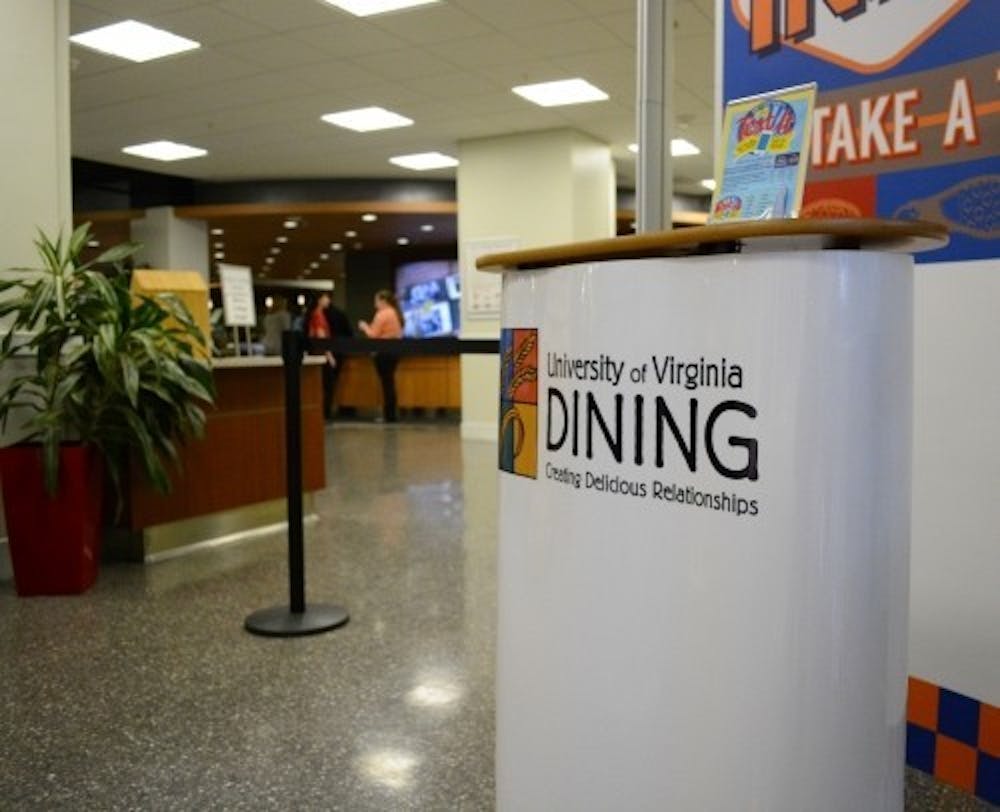Soon after the University decided to hold online classes and asked students not to return to Grounds, Aramark laid off a large number of its employees contracted to work at the University. All that is left is a “skeleton crew” that keeps Observatory Hill, the only operating University dining facility at this time, running for students who could not leave. Although the closures of the dining facilities are consistent with the University’s pleas to students not to return to Grounds, the abrupt firing of countless contracted workers by Amamark demonstrates the need for the University to finally break this contract and give all workers at University the care and respect that they deserve.
I have written before about the ethical issues that a company like Aramark poses within the University community. As University President Jim Ryan worked to implement a living wage for all University employees, Aramark and other agencies — being contracted companies — posed a significant obstacle in applying the living wage on a larger scale. A living wage was finally extended to contracted employees at the beginning of this year.
Only a few months after employees began to benefit from a living wage, Aramark has laid off many of its part-time workers. This betrayal of fair employee treatment should outrage University administration into finally ending its contract with Aramark.
Due to the economic crisis as a result of the coronavirus pandemic, lay offs are certainly to be expected. However, this does not excuse how Aramark is treating its employees. Aramark profited almost $600 million in the past fiscal year. The company’s CEO, John Zillmer, makes a base salary of $1.3 million with a target bonus that’s worth 175 percent of his base salary — that’s a bonus of $2.275 million. Other large companies have made sacrifices to minimize layoffs and pay cuts. For example, Marriott CEO Arne Sorenson will forfeit his $12.9 million salary for 2020 and the hotel chain’s executive team will all cut their pay by 50 percent. If Aramark cannot hold itself to this same standard of providing for its employees during tough times, it does not have a place in the University community.
It’s clear from the administration’s response to the closures of on-Grounds facilities that they prioritize the wellbeing of their employees — ensuring that federal work study students are compensated and other University employees will continue to be compensated and receive their employment benefits. But the reactions from Aramark employees affected by these layoffs are disheartening and exemplify the damage that the company has done. “It makes me sad knowing that I work for a company [that doesn’t] value their employees,” said Rae Banks, an Aramark employee at Wake Forest University who was recently laid off. Further, one Aramark employee at the University said she felt “disrespected” by the company’s actions. We must highlight this disconnect between the values of the University and the companies it contracts to do some of its most important operational work, such as dining services, utilities and warehouse jobs.
Clearly, Aramark does not share the same respect for its employees that the University is trying to put forth for its own during this time. Community relations between the University and larger Charlottesville and Albemarle communities are vastly important, as exemplified by Ryan’s own initiatives to foster a better relationship between the two. But students and community members alike have been frustrated with the way that Aramark has treated its employees for some time.
The length of time it took for Aramark to agree to paying its workers a living wage, along with its unannounced layoffs and failure to communicate these changes to the people it employs is plainly wrong. We must expect more from, not only Aramark, but also the University. President Ryan and Provost Liz Magill are in ongoing conversations with contracted companies regarding compensation. These conversations are important, and we must demand that the University administration speaks up for its contracted employees.
It is a very definitive moment for our communities. During this time of unprecedented crisis, many of us rely on the kindness and fairness of others to ensure that we can continue to house and feed ourselves. When a wealthy company — and one of the largest employers in the U.S. — cannot treat the individuals it employs with understanding and a desire to help, it becomes apparent that their values do not line up with the ones we try to foster in our own community. Community members have already spoken out against these practices, even starting a fundraiser for the employees who recently found themselves out of work. It is time for University administration to hold Aramark to a higher standard and reevaluate their place at the University.
Victoria McKelvey is the Executive Editor of The Cavalier Daily. She can be reached at v.mckelvey@cavalierdaily.com
The opinions expressed in this column are not necessarily those of The Cavalier Daily. Columns represent the views of the authors alone.







